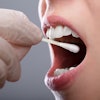The high cost of dental care leaves many in several countries with little money for basic necessities, according to new study in PLOS One (April 29, 2015).
The study from the U.K. and Malaysia assessed the extent of household "catastrophic dental health expenditure" in 41 low- and middle-income countries. An expenditure was defined as catastrophic if it reached at least 40% of a household's ability to pay.
Data were analyzed from more than 182,000 people ages 18 and older (69,315 in 18 low-income countries, 59,645 in 15 lower-middle-income countries, and 53,047 in eight upper-middle-income countries) who participated in the World Health Organization's (WHO) World Health Survey from 2002 to 2004.
As many as 7% of the households surveyed had incurred catastrophic dental health expenditures in the past month, the researchers found. Catastrophic expenditures were more common in wealthier, urban, and larger households and those in more economically developed countries. In low- and middle-income countries, the use of dental care is more a function of a household's ability to pay than of people's dental needs.
The analysis didn't assess indirect costs of seeking dental care, such as income loss because of ill health, travel, waiting at clinics, or providing care to family members. Therefore, the results probably underestimate the financial consequences of dental care on these households, according to a press release from King's College London.
"Using dental services can cost households a large proportion of their available income and push many into poverty and long-term debt," senior author Eduardo Bernabé, BDS, PhD, from King's College London Dental Institute, said in the release. "Those needing dental treatment face both the direct costs of using the service and indirect loss of income to attend a clinic during working hours."
The study highlights the low level of financial protection that healthcare financing systems provide for their citizens, Dr. Bernabé noted.
"Dental public health advocates and international dental organizations should push for dental care to be included in current discussions about universal health coverage," he concluded.



















